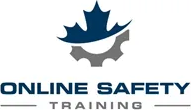Traffic Control Persons in Temporary Traffic Conditions

Ensuring Safe Passage: The Importance of Traffic Control Persons in Temporary Traffic Conditions in Canada
Temporary traffic conditions, such as construction zones, road maintenance activities, and special events, often disrupt normal traffic flow and pose risks to both motorists and workers. To manage these situations effectively and ensure the safety of all road users, traffic control persons (TCPs) play a crucial role in directing traffic, facilitating the movement of vehicles, and maintaining order in Canadian roadways. This article explores the significance of TCPs in temporary traffic conditions in Canada, highlighting their responsibilities, training requirements, and contributions to road safety.
- Ensuring Public Safety: The primary purpose of employing TCPs in temporary traffic conditions is to safeguard public safety by controlling vehicular and pedestrian traffic in potentially hazardous environments. Construction zones, for example, present numerous risks, including uneven road surfaces, lane closures, and heavy machinery operations. Traffic Control Persons in Temporary Traffic Conditions help mitigate these risks by directing traffic away from danger zones, signaling drivers to slow down or stop as necessary, and guiding pedestrians safely through work areas. By maintaining order and minimizing confusion, TCPs reduce the likelihood of accidents and injuries, protecting both road users and workers alike.
- Compliance with Regulatory Requirements: In Canada, regulatory authorities such as provincial transportation departments and municipal governments mandate the use of TCPs in various temporary traffic control situations. Legislation and industry standards, such as the Manual of Uniform Traffic Control Devices (MUTCD) and provincial traffic control manuals, outline specific requirements for the deployment of TCPs based on factors such as traffic volume, work zone complexity, and the duration of the temporary condition. Compliance with these regulations ensures that traffic control measures are implemented effectively and consistently across different jurisdictions, enhancing overall road safety and adherence to legal requirements.
- Effective Traffic Management: TCPs play a vital role in managing traffic flow and minimizing congestion in temporary traffic conditions. By strategically positioning themselves at key locations within work zones, TCPs can optimize traffic patterns, alleviate bottlenecks, and facilitate the safe movement of vehicles through construction or maintenance areas. Traffic Control Persons in Temporary Traffic Conditions use a combination of hand signals, flags, and signage to communicate with motorists, indicating lane closures, detours, or alternate routes as needed. This proactive approach to traffic management helps reduce delays, improve efficiency, and enhance the overall experience for road users navigating through temporary traffic conditions.
- Coordination with Work Crews: In addition to managing traffic, TCPs serve as a crucial link between work crews and road users, ensuring effective communication and coordination on-site. TCPs liaise with construction workers, utility personnel, and other stakeholders to coordinate activities, schedule lane closures, and implement necessary traffic control measures in real-time. This collaboration helps minimize disruptions to traffic flow while allowing essential work to proceed safely and efficiently. By acting as ambassadors for both the construction project and the traveling public, TCPs foster positive relationships and mutual respect between all parties involved.
- Enhanced Worker Safety: The presence of TCPs not only protects motorists and pedestrians but also enhances the safety of workers operating in temporary traffic conditions. By effectively controlling traffic and creating a buffer zone between moving vehicles and work areas, TCPs help minimize the risk of accidents and collisions involving construction crews and equipment. They monitor traffic conditions vigilantly, alerting workers to potential hazards or approaching vehicles, and enforcing safety protocols to ensure compliance with established guidelines. This proactive approach to worker safety is essential for preventing accidents, injuries, and fatalities in high-risk environments.
- Professional Training and Certification: To perform their duties effectively, TCPs undergo specialized training and certification programs designed to equip them with the knowledge, skills, and competencies required for the role. Training curricula typically cover topics such as traffic control procedures, flagging techniques, workplace safety, and regulatory compliance. TCPs learn how to recognize and respond to various traffic scenarios, communicate clearly with motorists, and prioritize safety in all aspects of their work. Certification programs ensure that TCPs meet established standards of proficiency and professionalism, providing assurance to employers, regulatory authorities, and the public that qualified individuals are responsible for managing temporary traffic conditions.
Traffic Control Persons in Temporary Traffic Conditions in Canada, ensure the safety of motorists, pedestrians, and workers alike. By directing traffic, enforcing regulatory requirements, and coordinating with work crews, TCPs help maintain order, minimize congestion, and enhance road safety in construction zones, work areas, and special events. Through professional training, certification, and dedication to their responsibilities, TCPs uphold the highest standards of professionalism and contribute significantly to the efficient and safe operation of Canadian roadways. As temporary traffic conditions continue to evolve and expand, the importance of TCPs in safeguarding public safety and promoting efficient traffic management remains paramount.
Categories
- Aerial Lift
- ATV Training
- Bear Awareness
- Chainsaw Training
- Confined Space
- Defensive Driving
- Forklift Training
- Lockout Tagout
- Online Safety Training
- Overhead Crane
- Pipeline Construction Safety Training
- Propane Handling
- Safety Training Benefits
- Scissor Lift
- Skid Steer Training
- Space Awareness
- TDG
- Telehandler Forklift
- Traffic Control
- Train the Trainer course
- Training Course
- Uncategorized
- WHMIS
- Workplace Harassment and Violence Preventiont
